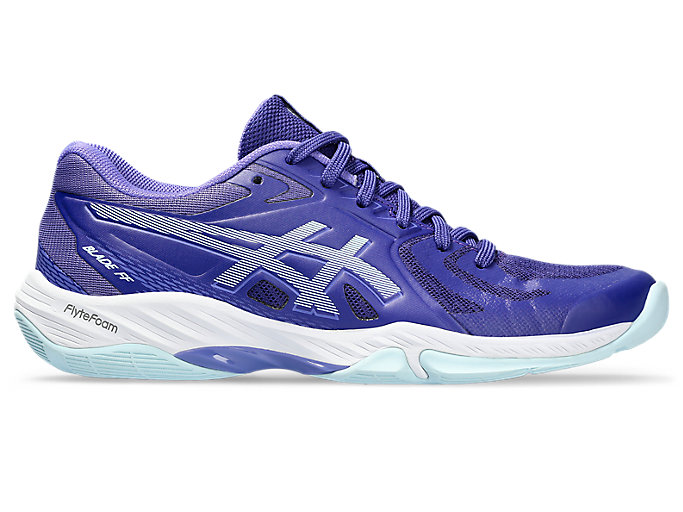BLADE FF
BLADE FF
Details
Women's Indoor Sport Shoes
120,00 €
84,00 €
Promotions
A squash and badminton shoe designed to help provide support and flexibility.
A squash and badminton shoe designed to help provide support and flexibility.
Add to cart options
The BLADE FF shoe helps create good support and flexibility for squash and badminton players engaging in multi-directional movements.
The upper has been reconstructed to promote a more supportive foothold. It also features more minimal reinforcement films that are lighter than traditional overlays.
By raising the heel drop, you're able to make faster forward transitions. This makes it easier to transition from the baseline to the net more quickly.
X GUIDANCE technology helps support improved court coverage. This function helps increase flexibility and allows you to move more easily on the court.
Style #:
1072A094.400
- No-sew overlaysimprove support and flexibility
- Raised heel collar heightImproves stability and keeps the foot from slipping out of the shoe
- TWISTRUSS technologySupports faster direction changes between a stop and full sprint when making quick transitions
- FLYTEFOAM technologyProvides lightweight cushioning
- X GUIDANCE technologyImproves flexibility and agility during multi-directional movements
- The sockliner is produced with a solution dyeing process that reduces water usage by approximately 33% and carbon emissions by approximately 45% compared to the conventional dyeing technology










